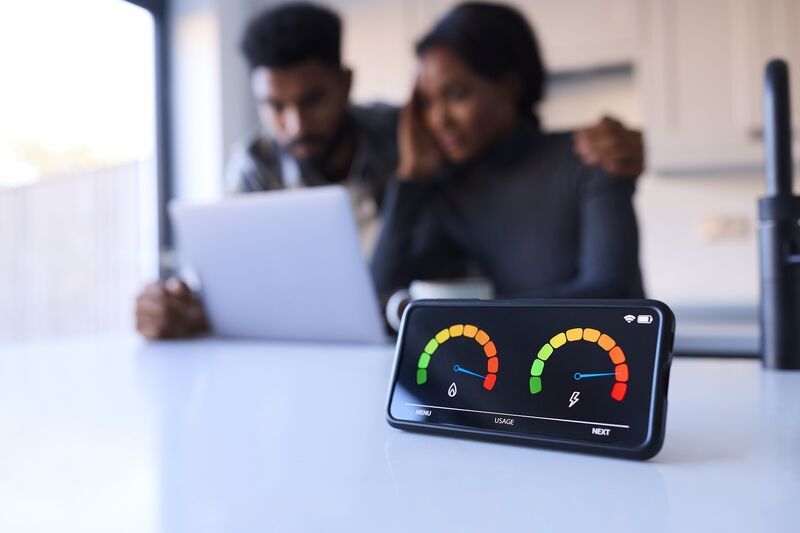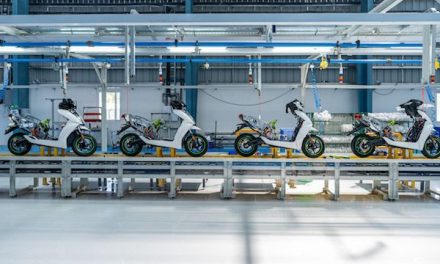With housing accounting for around 20% of the UK’s carbon emissions and amid the ongoing cost-of-living crisis, there is an ever-growing need for solutions to drive decarbonisation while reducing energy costs. Nicola Kennedy, CEO of Heero Technologies, explains how technology can help achieve these goals.
The installation of renewable technologies and other energy-saving measures should be a priority for consumers. However, faced with ever-increasing bills and the ongoing cost-of-living crisis – between 2022 and 2023, gas and electricity prices rose by 19% in real terms, leaving more than 3 million households in England in fuel poverty – improving the energy efficiency of their homes has not been top of mind for most.
Consumers’ apathy can, in large part, be attributed to a lack of knowledge. According to data from the latest Property Watch report by e-surv, 74% of those surveyed had a limited understanding of the benefits of energy-efficient products and services. For those who do understand the value of energy-saving measures, cost remains a significant barrier, with 32% citing the cost of installation as a constraint.
To accelerate decarbonisation and improve the energy efficiency of over 27 million homes across the UK, it is vital that industry works together to educate consumers and dispel myths that home energy improvements and upgrades are too costly to implement.
Advocacy and education
To help make consumers aware of the environmental and economic realities of retrofitting, and that the decarbonisation of homes is urgent and necessary work, conscious efforts around advocacy and education are needed. After all, the retrofitting process can be complex.
As well as helping consumers to understand the undoubtedly unfamiliar terminology related to retrofitting, work needs to be done around the various measures available, and the efficacy and benefits of each.
Consumers need to be made aware that there is no one size fits all approach to making homes more energy efficient and that successfully upgrading an existing property depends on various factors. For example, expensive, high-tech measures are not necessarily the best option – in some homes, small, relatively routine upgrades can have an immense impact on energy-efficiency and costs.
Of course, the reality is that some measures may be more costly than others, but that is why it is vital to ensure that the right improvements take place in the right properties, and why consumers need personalised advice.
The key to addressing the knowledge barrier is to ensure that consumers have accessible and actionable advice and information so that they can make informed decisions about which work best for their properties. The answer to achieving this lies in employing technology.
Tackling decarbonisation with technology
Technology is not only an essential enabler in the challenge to tackle decarbonisation but can also play a vital role in debunking myths and shaping consumer attitudes towards retrofitting.
There are a number of tech tools available to successfully support consumers in unlocking the barriers to retrofit, enabling more energy efficiency home upgrades at pace and scale. One of these is a software application designed to streamline the user experience and guide consumers through the entire energy retrofit journey. Developed by Heero Technologies, it enables providers to offer consumers bespoke home energy insights and recommendations.
The App presents consumers with options and solutions in an easy-to-understand way by accurately showing which property-specific energy efficiency measures will achieve the best results, what it will cost to install these measures, as well as how much consumers can expect to save after making the suggested improvements. It also addresses the cost issue by providing valuable information on and assistance in gaining access to finance.
Essentially, the technology allows stakeholders to offer consumers a seamless customer journey from insight to installation by removing complexity and providing trusted support. An added benefit of this tool is that the advice, while personalised, is agnostic, meaning there are no unfulfilled promises from companies trying to sell something, and no ineffective advice from well-intentioned but ill-informed sources.
Driving action
Energy-efficient housing is a necessity in the face of climate change and rising energy costs. By turning to cleantech, industry stakeholders – from installers to developers – can be hugely influential in helping consumers to successfully navigate retrofitting by educating them on the options and benefits of energy-saving solutions and identifying measures to help them create more efficient homes.
Ultimately, industry must work together to ensure all consumers are educated and empowered with personalised information, support, and guidance to make the most effective choices for their unique home and circumstances by advising and providing all the information and tools they need to make decisions they can act on.
For more information, visit www.heerotechnologies.com.






